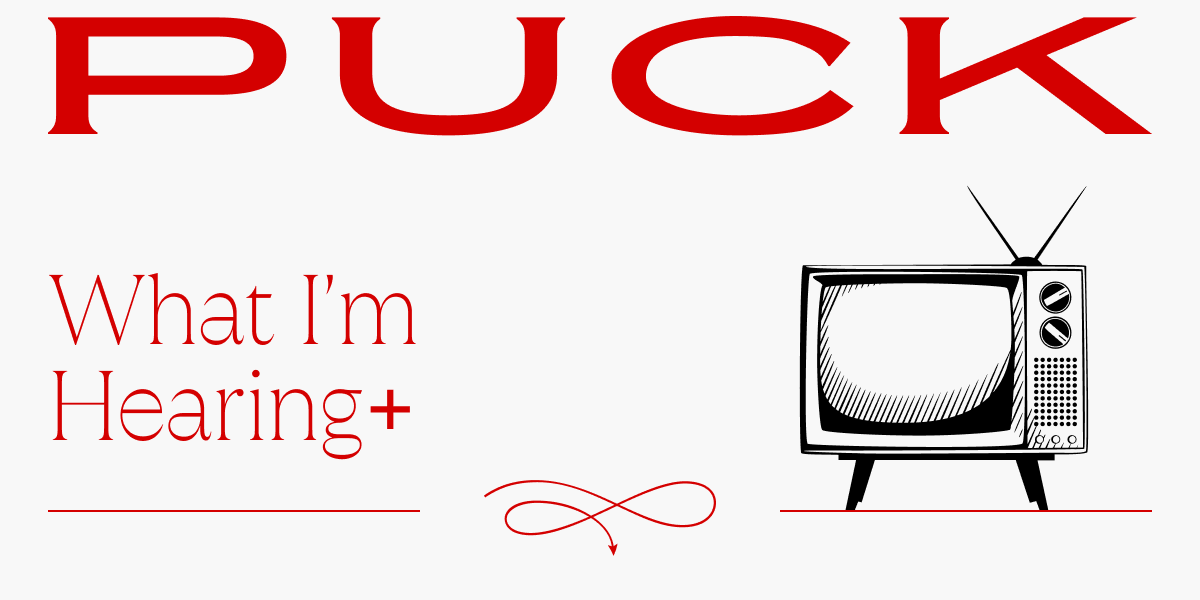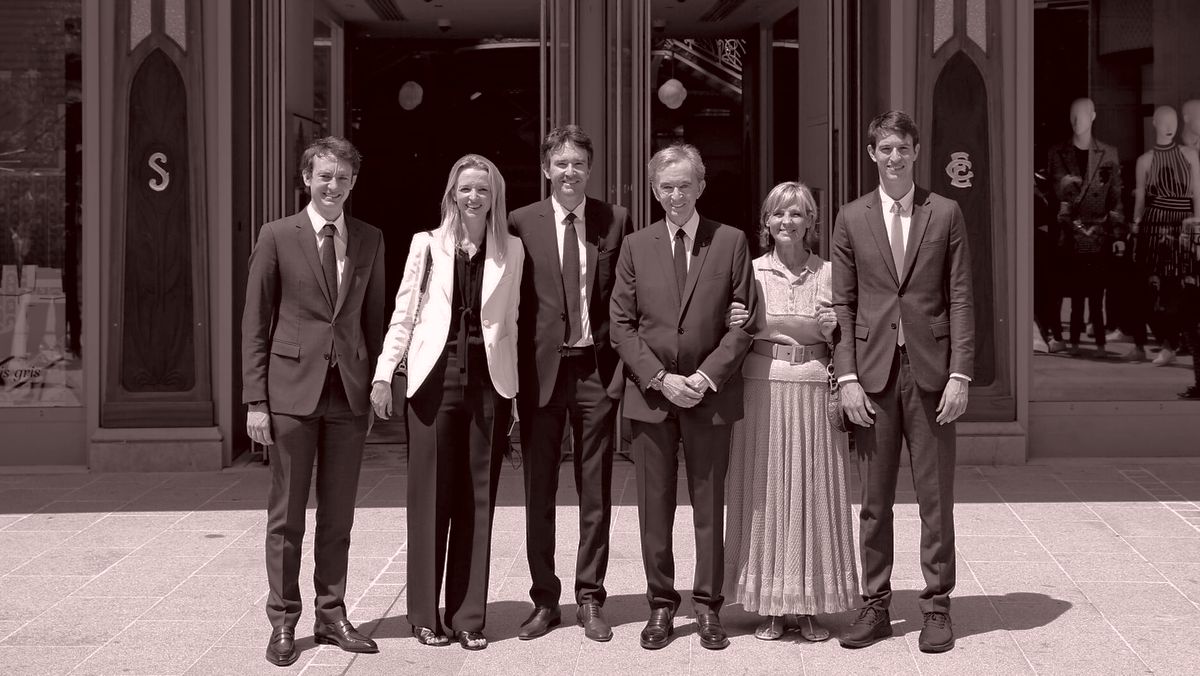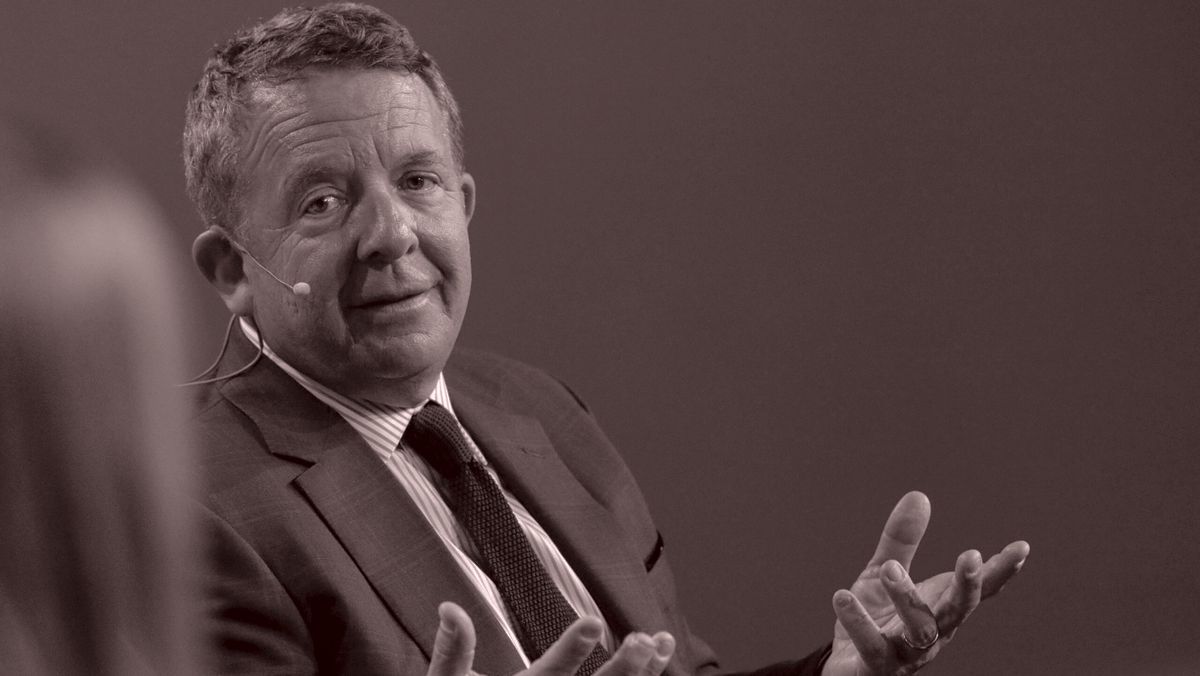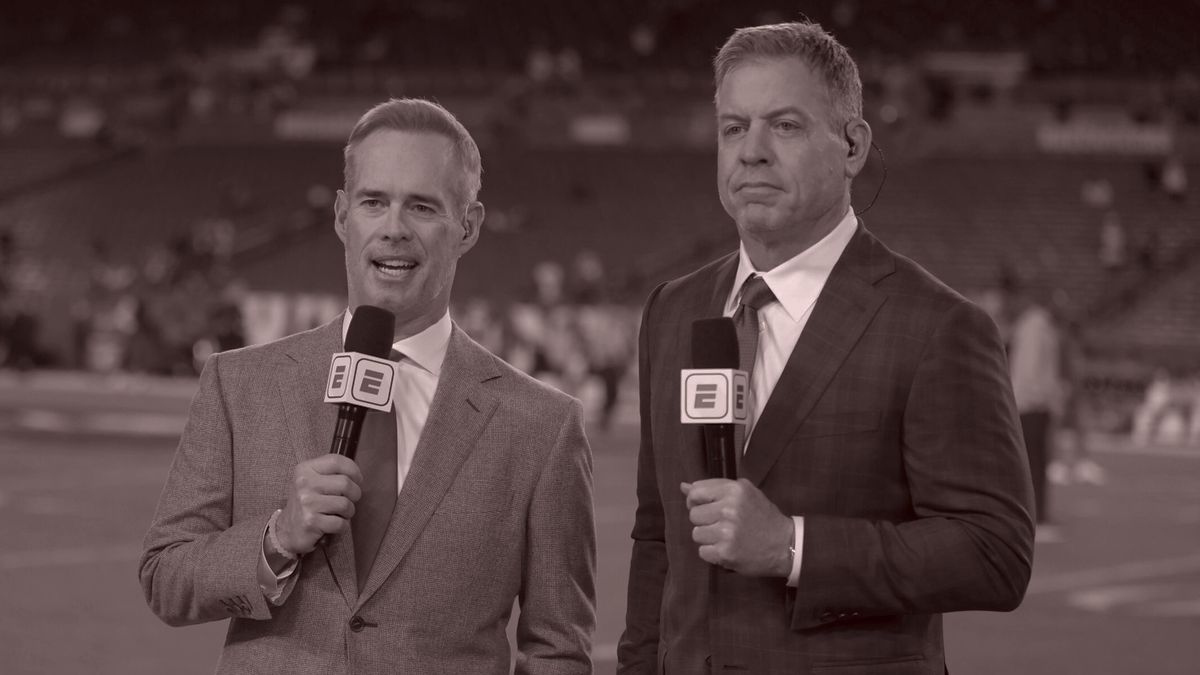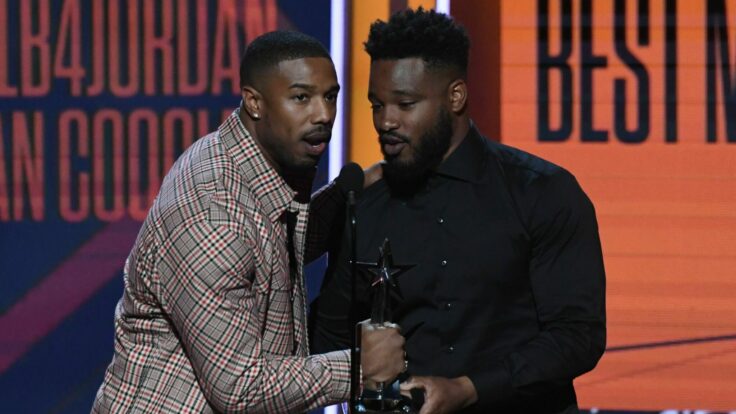Welcome back to What I’m Hearing+, the overall No. 1 seed in the WIH tournament. As
readers know, I was in Palm Beach last week, so I was heartened to find out Eriq Gardner was working on an update in the increasingly ridiculous legal saga of former Marvel chief Ike Perlmutter, Mar-a-Lago member and one of South Florida’s most upstanding citizens. It’s a wild story with actual ramifications for the media. Plus: OpenAI’s aggressive request that has Hollywood people aghast, Trump’s latest law firm target, and Village Roadshow spent
how much fighting Warner Bros. over The Matrix 4? All yours, Eriq…
|
|
|

|
Eriq Gardner
|
|
- Trump targets Paul
Weiss: Unlike his executive orders aimed at the D.C. law firms Perkins Coie and Covington & Burling, Donald Trump’s retaliatory action against Paul Weiss—suspending security clearances, restricting access to government buildings, and putting federal contracts with the firm under review—figures to have a broader impact for
the media and entertainment industries, which has used the firm extensively through the years.
Rupert Murdoch’s companies, Fox and News Corp., have relied on Paul Weiss for internal investigations dating back to the Roger Ailes scandal. On the transactional side, the firm has played a key role in financing Skydance, creating Warner Bros. Discovery, and structuring the merger of WWE and UFC into TKO Group. Currently, Paul Weiss is defending CAA in
Julia Ormond’s lawsuit over its alleged role in a Harvey Weinstein assault, and pursuing Spotify over claims it underpaid royalties to song publishers. Many of these matters involve significant interaction with the federal government, making it likely that Paul Weiss will challenge the constitutionality of the order—as Perkins Coie has already done.
Trump’s targeting of big law firms has fomented somewhat of a crisis in the legal community, which is
struggling to figure out an appropriate response. Over the past few days, I’ve spoken to several Paul Weiss clients, who told me they remain supportive of the firm, and have no plans to seek other representation.
- Open A.I.’s copyright argument: OpenAI is urging the Trump administration to add a startling provision to the government’s A.I. Action Plan: Namely, a blanket declaration that copyrighted material falls under “fair use” when it comes
to training A.I. models. You may have seen the open letter that 400 Hollywood people released opposing such a move. Sam Altman & Co. are trying to justify the request by
arguing that unless the U.S. relaxes the legal barriers, China’s unrestricted access to the same data will hurt U.S. companies, meaning “the race for A.I. is effectively over.”
Of course, how copyright law applies to
A.I. is one of the most heated legal topics of our time, and it’s debatable whether a White House policy statement alone will shift judicial thinking. That said, I wouldn’t entirely dismiss the idea that Trump could take aggressive action here. After all, as a property developer, he was a vocal advocate for the government using the principle of eminent domain to seize land. As president, he’s surrounded himself with A.I. boosters and “accelerationists” who are embedded in his administration and
have his ear.
Should Trump apply a similar approach to Hollywood I.P.—declaring that copyrighted works could be repurposed for the sake of America’s A.I. dominance—it would set up a massive Fifth Amendment fight. Major studios would undoubtedly challenge his authority to commandeer their content without just compensation, sparking a legal showdown over whether the government can take creative assets for the sake of a technology arms race. I’ll be watching this one closely…
- Live Nation’s antitrust surprise: There was never much doubt that the government’s antitrust case against Live Nation would survive an initial dismissal motion. But U.S. District Court Judge Arun Subramanian’s specific ruling—that the government has plausibly alleged illegal tying (when a seller
requires a buyer to purchase a second item as a condition for buying the first)—is a bit of a surprise. Just weeks ago, he seemed skeptical of the claim, and appeared receptive to Live Nation’s position that its control of amphitheaters hadn’t improperly extended its power as a concert promoter. While Live Nation contended that its venues were legally free to lock out competitors, Subramanian concluded, “These allegations aren’t just about a refusal to deal with rival promoters. They are about
the coercion of artists.”
That distinction is a signpost for where this litigation is headed, and what discovery will now take center stage. The ruling shifts the focus to why artists are making the choices they do when touring—meaning, we should expect to hear from high-profile performers, via depositions or even trial testimony. Right now, the evidentiary record on this issue is relatively thin—one of the reasons it wasn’t a total given that this claim would survive
Live Nation’s dismissal bid. Now, it’s up to the government to prove its case.
- Village Roadshow’s unpaid legal bill: Here’s a colorful detail from the recent Chapter 11 filing by The Matrix and Joker producer Village Roadshow. The company racked up $18 million in legal fees during its arbitration battle with Warner Bros., and apparently, nearly all of it remains unpaid. Tough break for Kirkland & Ellis, which, notably, is
not representing the financier in its restructuring.
As for that arbitration, it remains something of a black box. In foreshadowing this bankruptcy, Matt Belloni laid out the penalty that Village Roadshow faces for refusing to cover its share of the $190 million production budget for 2021’s The Matrix Resurrections. Other aspects of
this dispute pertain to future projects—details that Village Roadshow’s bankruptcy lawyers are attempting to keep under seal, citing the arbitration’s confidentiality provisions. (A pretty flimsy excuse, if you ask me.)
Village Roadshow is trying to separate its lucrative library rights (as Matt predicted, Content Partners has a tentative deal for $365 million, but it could be outbid in a bankruptcy auction) from its less desirable derivative rights—meaning its stake in development
projects like an Edge of Tomorrow TV series and the I Am Legend sequel. According to comments at a Delaware bankruptcy hearing today, Village Roadshow has moved such derivative assets to a shell company for $1—a transaction that a Warner Bros. attorney told the judge the studio would likely challenge as “fraudulent.”
WB maintains that it is owed more than $100 million from the Matrix breach—the arbitrator will soon decide the precise amount—so the studio could
object to anything being excluded from the debtor’s estate. Plus, WB has taken the position that it’s allowed to move forward on these projects without Village Roadshow. Meanwhile, other creditors may also want clarity on whether there’s still value to be extracted from those derivative rights. That means there’s a reasonable chance we’ll soon get a clearer picture of what’s happening behind closed arbitration doors and the status of those future projects.
|
|
|
The battle between Perlmutter, the former Marvel chairman and Trump buddy, and
his onetime Palm Beach neighbor, which started over some tennis courts, is back on the legal docket. The outcome may impact defamation cases nationwide.
|
|
|
At Mar-a-Lago in late December, Donald Trump told a story
about his 82-year-old friend Ike Perlmutter, the reclusive billionaire who famously seized control of a bankrupt Marvel in the ’90s and later flipped it to Disney for $4 billion. In Trump’s version, Perlmutter went from “stone-cold broke to owning Disney,” only to walk away because of “woke Donald Duck,” a quip he trotted out in front of party guests including Sylvester Stallone.
The reality, of course, is a bit different. Perlmutter spent years stewing as chairman of Marvel, frustrated and marginalized by Disney. After he backed Nelson Peltz’s (first) failed proxy fight in 2023, Bob Iger swiftly shoved Perlmutter out, citing “redundancy” at Marvel, and denying the proxy fight had anything to do with it. No ideological crusade here—just another C-suite defenestration.
But Perlmutter’s Disney fight is only part of the story. You remember this battle, right? It dates back to the early days of the Marvel-Disney merger, when Perlmutter feuded with a Palm Beach neighbor, Toronto businessman Harold Peerenboom, over the management of some tennis courts. (I went deep into their dispute for The Hollywood Reporter.) The spat devolved into a years-long legal brawl, including secretive DNA tests, a battalion of high-priced lawyers, and accusations that Perlmutter was sending anonymous hate mail to Peerenboom’s neighbors accusing him of crimes. (Andrew Ross Sorkin also
chronicled the feud in The New York Times.) It turned out that Perlmutter wasn’t behind the letters; instead, it was a disgruntled ex-employee of Peerenboom’s. The ramifications of that twist have been explored in ceaseless court proceedings.
Now, more than a decade after it began, the Perlmutter-Peerenboom saga is heating up again. Trump’s pal is asking the Florida Supreme Court to let him seek punitive damages over what he claims was Peerenboom’s campaign to “terrorize” him, including leaking to the Times faulty DNA test results purporting to link him to the hate mail. The justices have agreed to hear Perlmutter’s petition.
Why should this matter beyond the Palm Beach cocktail circuit? Because the justices will decide a crucial question: How much “gatekeeping” should Florida courts do before sending disputes like this to a jury? The underlying legal issue has implications that stretch far beyond petty billionaire feuds. Take defamation lawsuits. Under Supreme Court precedent,
plaintiffs in libel cases can only collect punitive damages if they show “actual malice.” But who decides whether actual malice has been shown? Judges? Or juries? At a time when media companies are facing an uptick in defamation suits, especially in red states like Florida, and given the country’s increasing distrust of the media, it’s not a stretch to conclude that juries will be far more sympathetic to a plaintiff than a judge would be.
|
At the heart of the case is the clandestine theft of Perlmutter’s DNA during a
2013 deposition. Peerenboom suspected Perlmutter was behind anonymous mailings that accused him of murder and sexual abuse. William Douberley, a lawyer provided to Peerenboom by Chubb insurance, hatched a plan: Obtain Perlmutter’s genetic material, test it against DNA from the mailings, and—if it matched—leak the results. The goal, according to Douberley’s deposition: Get Perlmutter fired and shake Disney’s stock price.
It didn’t go as planned. Perlmutter’s DNA was indeed collected—he was handed fake exhibits, which were later retrieved by a crime scene technician—but the initial test didn’t produce a strong match. Allegedly, the DNA lab reran the analysis using a contaminated sample, which produced a supposed match—this time, to Perlmutter’s wife, Laura. That was enough to spark a new wave of litigation and a full-fledged P.R. campaign.
In Florida, lawsuits move at the pace of a judge’s discretion. This one was a slow burn, with years of discovery and legal maneuvering—until a twist emerged. Homeland Security intercepted a hate-mail kit—envelopes with preprinted addresses, latex gloves, etcetera—and traced it to David Smith, a former vice president at Peerenboom’s Canadian company. That should have been the end of it. But Peerenboom’s
attorneys weren’t satisfied and pressed forward regardless, alleging that the Perlmutters had conspired with Smith to disguise the true origin of the letters. Perlmutter responded by pushing counterclaims of invasion of privacy, defamation, abuse of process, and more.
The case was cleared for trial, but Florida’s Fourth District Court of Appeal ruled the evidence was too “ambiguous” to justify
punitive damages for Perlmutter. The justices saw only circumstantial evidence that Peerenboom’s camp had done anything more than aggressively investigate the hate mail. “Such evidence could never meet the clear and convincing standard at trial,” the opinion stated.
Now Perlmutter, who claims Peerenboom and
Douberley fabricated a fake DNA match, is asking the Florida Supreme Court to reinstate punitive damages, arguing that “clear and convincing” is overly strict and inconsistent with other Florida rulings. His lawyers laid it out in a March 10 filing: If stealing DNA, manipulating forensic results, and feeding bad science to the media in an effort to take down a
high-powered executive doesn’t meet the bar for punitive damages, they asked, what does?
|
Interestingly, the Perlmutter appeal cites two recent cases against CNN. I’ve
reported on Zachary Young, the Navy veteran who sued CNN for implying he’d been part of a “black market” helping Afghans flee from the Taliban. There, a judge didn’t apply the “clear and convincing” standard, and a jury ruled for Young. CNN ultimately settled for an undisclosed amount.
Michael Black, a West Palm Beach heart surgeon, also sued CNN for its
reporting on infant mortality rates at his hospital. A judge greenlit this case for trial—but Florida’s Fourth District reversed the decision in 2023, ruling that Black hadn’t clearly and convincingly demonstrated actual malice. Black’s lawyer, Libby Locke, is closely watching the Perlmutter case, which may determine whether she gets to come back against CNN. She’s submitting an amicus brief arguing there shouldn’t be a “mini-trial” before the real trial—that juries, not judges,
should weigh evidence and credibility.
Of course, that’s one perspective. The Florida Supreme Court will also hear from the U.S. Chamber of Commerce, which is submitting its own amicus brief arguing for stricter judicial oversight. To them, this case is about tort reform. Obviously, the business community would like to see fewer personal injury cases.
This brings me to a key point: The availability of punitive damages fundamentally shapes the incentives for plaintiffs’ lawyers and the settlement calculus for insurers. If judges take on a stricter gatekeeping role, it will likely disincentivize certain types of litigation. But if more cases make it to trial—especially in front of juries that may not be particularly sympathetic to media companies—we can expect to see a lot more cases filed. That this is all happening in a
case involving a man who once controlled Spider-Man, the X-Men, and the Avengers, and who now believes he was terrorized? Just happenstance. A tale for a comic book, perhaps, as well as one for the courts.
|
Thanks Eriq, I’ll be back on Thursday evening.
Matt
|
|
|
Puck founding partner Matt Belloni takes you inside the business of Hollywood, using exclusive reporting and
insight to explain the backstories on everything from Marvel movies to the streaming wars.
|
|
|
Unique and privileged insight into the private conversations taking place inside boardrooms and corner offices up
and down Wall Street, relayed by best-selling author, journalist, and former M&A senior banker William D. Cohan.
|
|
|
Need help? Review our FAQ page or contact us for assistance. For brand partnerships, email ads@puck.news.
You received this email because you signed up to receive emails from Puck, or as part of your Puck account associated with . To stop receiving this newsletter and/or manage all your email preferences, click here.
|
Puck is published by Heat Media LLC. 107 Greenwich St, New York, NY 10006
|
|
|
|
